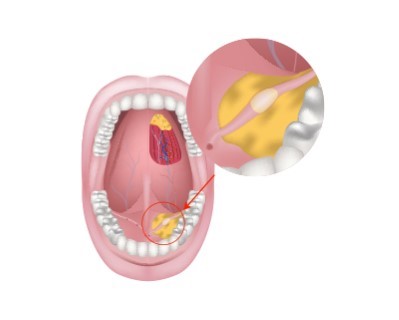Salivary Gland Surgery
- Purpose: Removes or treats salivary glands to address infections, stones, or tumors.
- Procedure: Surgical techniques vary depending on the condition and gland involved.
-
Note: The information provided here applies to routine Salivary Gland Surgery procedures under standard conditions. However, specifics may vary depending on individual patient factors, such as the type and location of the gland involved, patient tolerance, or any complications that might arise during or after the procedure. The patient’s overall health, the complexity of the surgery, and the need for additional interventions (e.g., removal of tumors or stones) can also influence the surgery and recovery process.
Inpatient/Outpatient
Salivary Gland Surgery can be performed as either an inpatient or outpatient procedure, depending on the complexity of the surgery and the patient’s overall health. Minor procedures, such as the removal of small stones or cysts, are often done on an outpatient basis. More extensive surgeries, such as the removal of a major salivary gland (e.g., parotidectomy), may require an overnight stay for closer monitoring.Hospital Stay Duration
For minor salivary gland surgeries, patients generally do not require an overnight hospital stay and can return home the same day. For more complex procedures, such as the removal of a parotid gland or submandibular gland, a hospital stay of 1 to 2 days may be necessary to monitor for complications such as bleeding, infection, or facial nerve injury.Type of Anesthesia
Salivary Gland Surgery is usually performed under general anesthesia, meaning the patient will be fully unconscious during the procedure. In some cases, local anesthesia with sedation may be used, particularly for less invasive procedures. The choice of anesthesia depends on the patient’s preference, the extent of the surgery, and the surgeon’s recommendation.Travel After Procedure
Patients are generally advised to avoid travel, particularly long-distance or air travel, for at least 1 to 2 weeks after the procedure. This allows time for initial recovery and monitoring for any potential complications, such as swelling, infection, or bleeding. Patients should follow specific recommendations from their healthcare provider regarding travel and activity levels based on their recovery progress.Pre-procedure Preparation
Preparation for Salivary Gland Surgery typically involves following specific guidelines provided by the healthcare provider. Patients may be advised to avoid eating or drinking for several hours before the surgery, typically after midnight the night before the procedure. It is also important to inform the surgical team of any medications the patient is taking, particularly blood thinners, as these may need to be adjusted before surgery. Smoking should be avoided to enhance healing and reduce the risk of complications. Pre-operative imaging studies, such as an ultrasound, MRI, or CT scan, may be required to assess the size and location of the gland or any associated tumors or stones.Procedure Duration
The duration of Salivary Gland Surgery varies depending on the complexity of the procedure and the gland involved. Minor procedures, such as the removal of stones or small cysts, may take 30 minutes to 1 hour. More extensive surgeries, such as a parotidectomy (removal of the parotid gland) or submandibular gland excision, may take 2 to 4 hours or longer. During the surgery, the surgeon carefully removes the affected gland or tumor, taking care to preserve surrounding structures, such as the facial nerve, which is particularly important in parotid gland surgery.Recovery Time
Recovery from Salivary Gland Surgery can take several weeks. Most patients experience swelling, bruising, and mild pain in the area where the surgery was performed. Pain management is crucial, and patients are usually prescribed pain relievers to help manage discomfort. Patients are typically advised to avoid strenuous activities, heavy lifting, and any activities that could strain the surgical area for at least 2 weeks. A soft or liquid diet may be recommended initially, especially if the surgery involved the submandibular gland or if there is difficulty swallowing. Full recovery, including the resolution of swelling and return to normal activities, can take several weeks to a few months, depending on the extent of the surgery.Estimated Cost
The cost of Salivary Gland Surgery can vary widely depending on the surgeon's expertise, the complexity of the procedure, geographic location, and whether the surgery is part of a broader treatment plan for conditions such as tumors or chronic infections. For accurate cost information, patients should contact their healthcare provider or surgical center directly.Post-procedure Care
Post-procedure care for Salivary Gland Surgery involves managing pain, preventing infection, and ensuring proper healing. Patients are usually prescribed pain relievers and may be given antibiotics to prevent infection. It is important to follow the healthcare provider’s instructions on how to care for the surgical site, including keeping the area clean and dry. Patients may be advised to use ice packs to reduce swelling and to avoid applying pressure to the area. Follow-up appointments are essential to monitor healing, remove any sutures, and assess the overall success of the surgery. In the case of any severe pain, fever, significant swelling, or facial weakness, patients should seek immediate medical attention.

